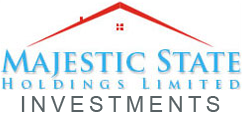Introduction:
In the realm of scientific discovery, the actual involvement of citizen researchers has evolved into a powerful cause for research. Community-led study, often termed citizen science, empowers individuals from various backgrounds to actively promote scientific investigations. This article delves into the success stories arising from community-led research initiatives, highlighting the particular impactful collaborations between researchers and citizens that hard drive innovation, broaden datasets, and foster a deeper network between science and world.
The Evolution of Citizen Science:
A Paradigm Transfer:
Historically, scientific research was confined to academic institutions in addition to professional researchers. However , the main democratization of science has seen a shift towards engaging citizens in the research process. Community-led research emphasizes inclusivity, recognizing that priceless insights can come from individuals outside traditional academic communities.
Diverse Participation:
Citizen knowledge projects attract participants with all walks of life, leveraging the particular collective power of the public to treat scientific questions. From ornithology and astronomy to enviromentally friendly monitoring and health scientific tests, citizen scientists contribute to lots of different research domains, bringing varied perspectives and experiences to scientific community.
Success Stories right from Community-Led Research:
Project FeederWatch:
One standout success tale is Project FeederWatch, a new bird monitoring initiative. Enlisting bird enthusiasts worldwide for you to document their backyard bird observations, this project features generated a wealth of data on bird populations, migration patterns, and species distribution. Typically the collaboration between professional ornithologists and citizen scientists includes significantly expanded our comprehension of avian ecology.
Foldit:
In the realm of biochemistry, the online online game Foldit represents a exploratory example of citizen engagement. Competitors manipulate virtual protein set ups, contributing to the understanding of complex biochemical processes. https://annehelen.substack.com/p/the-lifestyle-blog-voter/comments Foldit’s success lies in the ability of citizen scientists to solve problems that stumped computer algorithms, showcasing the effectiveness of collective human intuition.
NASA’s Globe Observer:
Embracing the potential of citizen scientists to monitor World’s environment, NASA’s Globe Viewer project encourages individuals to add data on clouds, stretch of land cover, and mosquito retraite using a smartphone app. This global initiative aids research workers in studying climate shapes, ecosystem changes, and the distribute of diseases, demonstrating the impact of community-led efforts over a planetary scale.
Benefits of Community-Led Research:
Data Volume plus Geographic Scale:
The sheer number of participants in resident science projects allows for files collection on a scale that you will find logistically challenging for regular research teams. This extensive dataset not only provides important insights into various trends but also allows for a more comprehensive understanding of geographic variations.
Community Engagement and Education:
Resident science fosters a sense of possession and engagement among patients. By involving citizens during the scientific process, community-led research serves as a potent tool for science education and general population outreach. Participants gain hands-on experience and a deeper idea of the scientific method, demystifying the research process.
Challenges along with Considerations:
Quality Assurance:
Ensuring the accuracy and dependability of data collected by homeowner scientists poses a challenge. Thorough protocols for data affirmation and training programs are necessary to maintain scientific standards when promoting inclusivity.
Equitable Participation:
Striving for inclusivity is important to the success of community-led research. Efforts must be built to address barriers to admittance, including language, accessibility, as well as cultural considerations, to ensure that citizen science projects represent a various range of perspectives.
Integration together with Traditional Research:
Effective collaboration between professional scientists together with citizen researchers requires crystal clear communication and mutual value. Integrating community-led research in traditional scientific practices enhances the credibility and impact with citizen science initiatives.
Bottom line:
The success stories emerging with community-led research underscore often the transformative potential of homeowner science in advancing research knowledge. By embracing the actual contributions of citizen experts, researchers not only gain valuable data but also benefit from the assorted perspectives and enthusiasm the fact that the public brings to the clinical endeavor. As we navigate the evolving landscape of medical discovery, the collaborative synergy between professional researchers along with citizen scientists promises for you to shape a more inclusive and even impactful future for community-led research.


